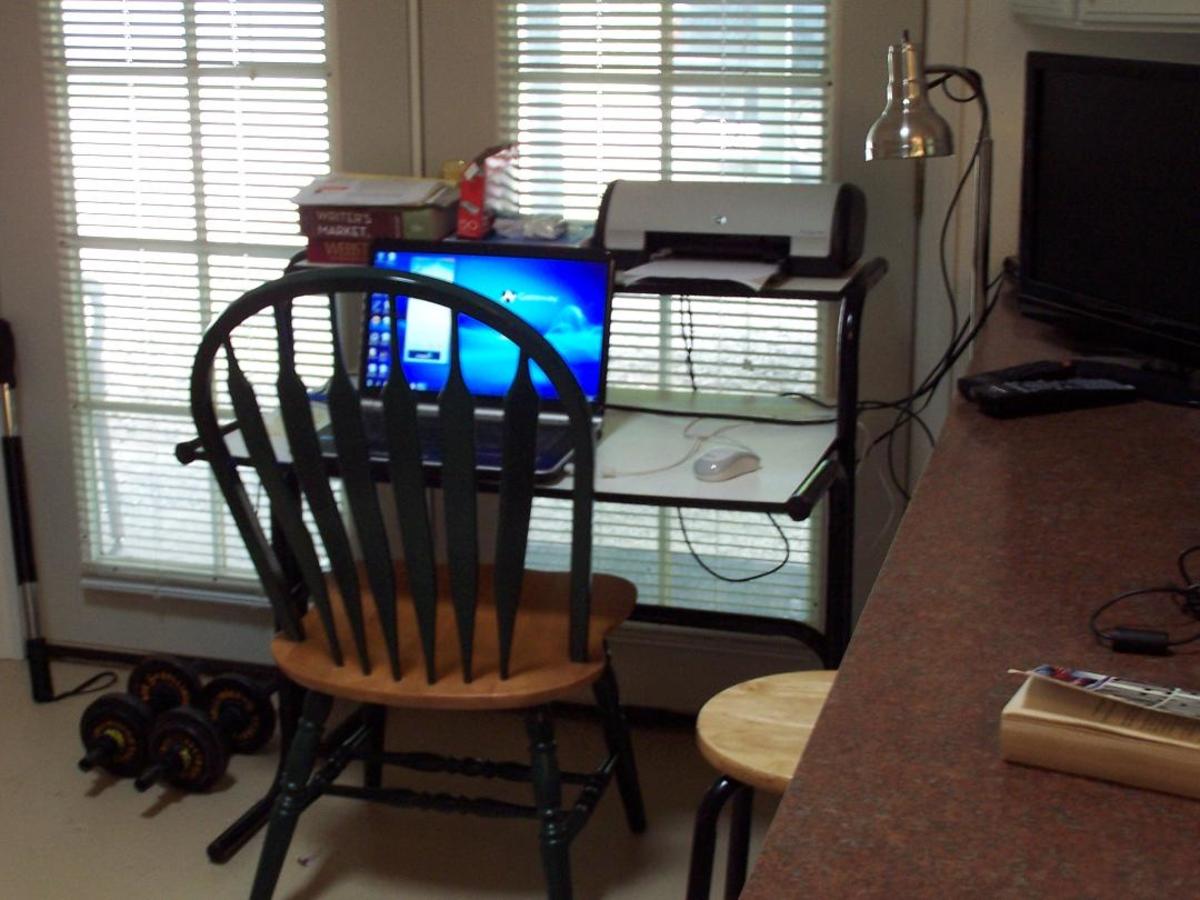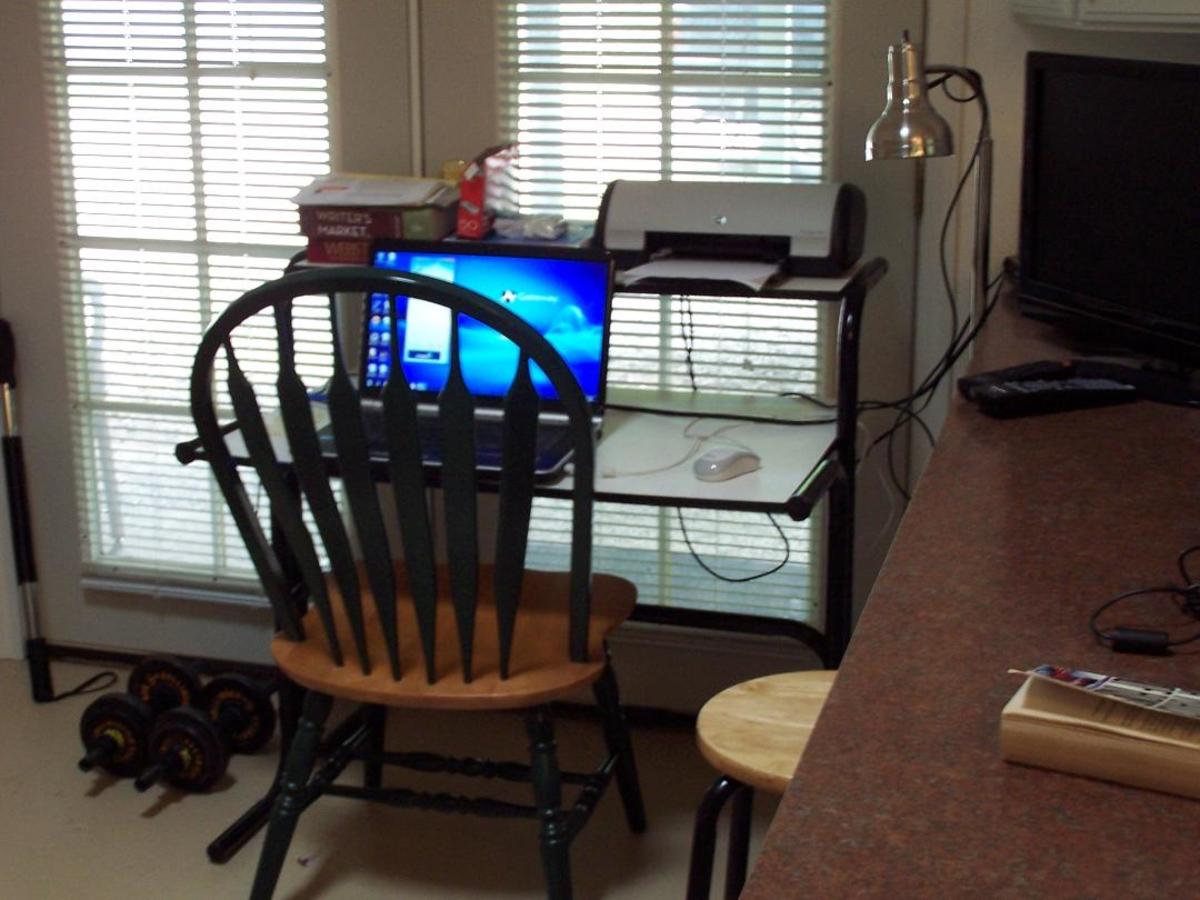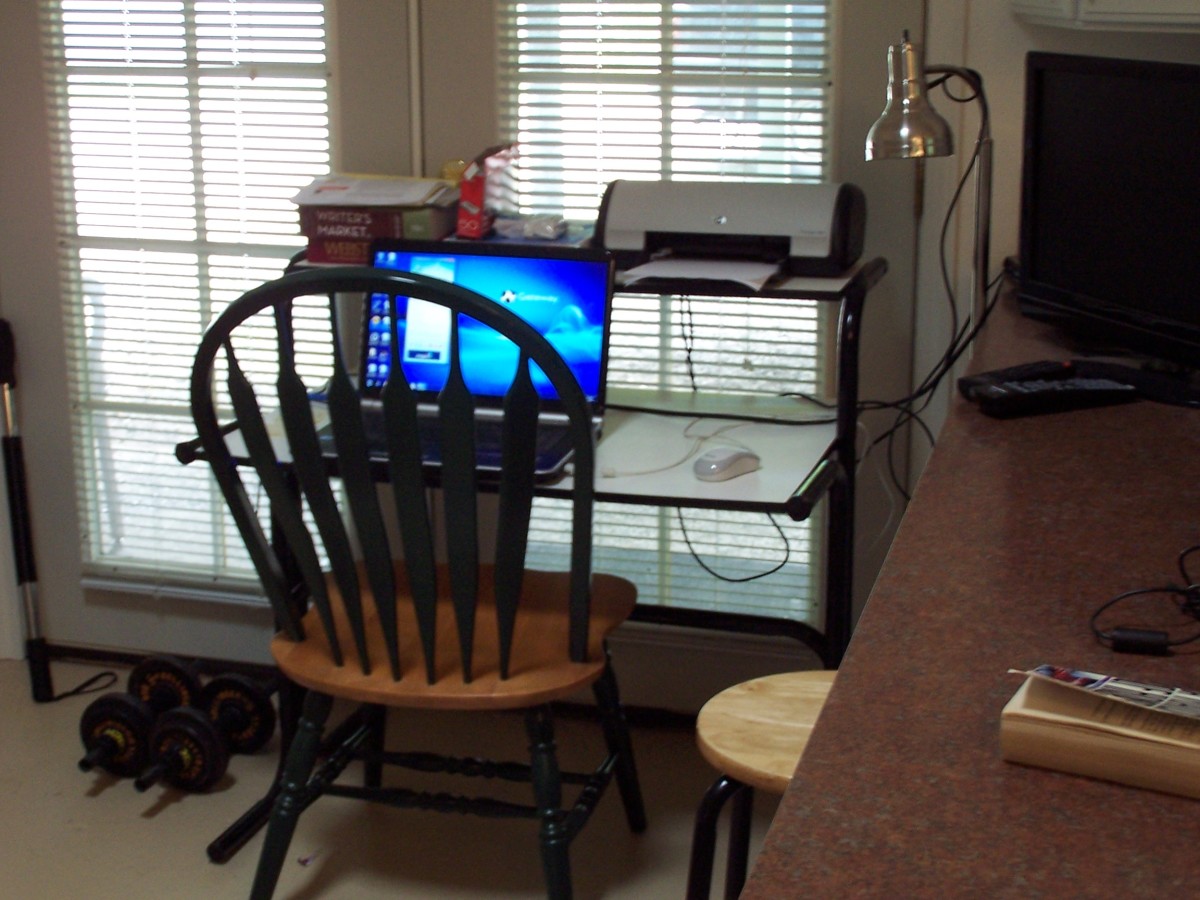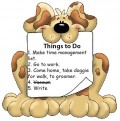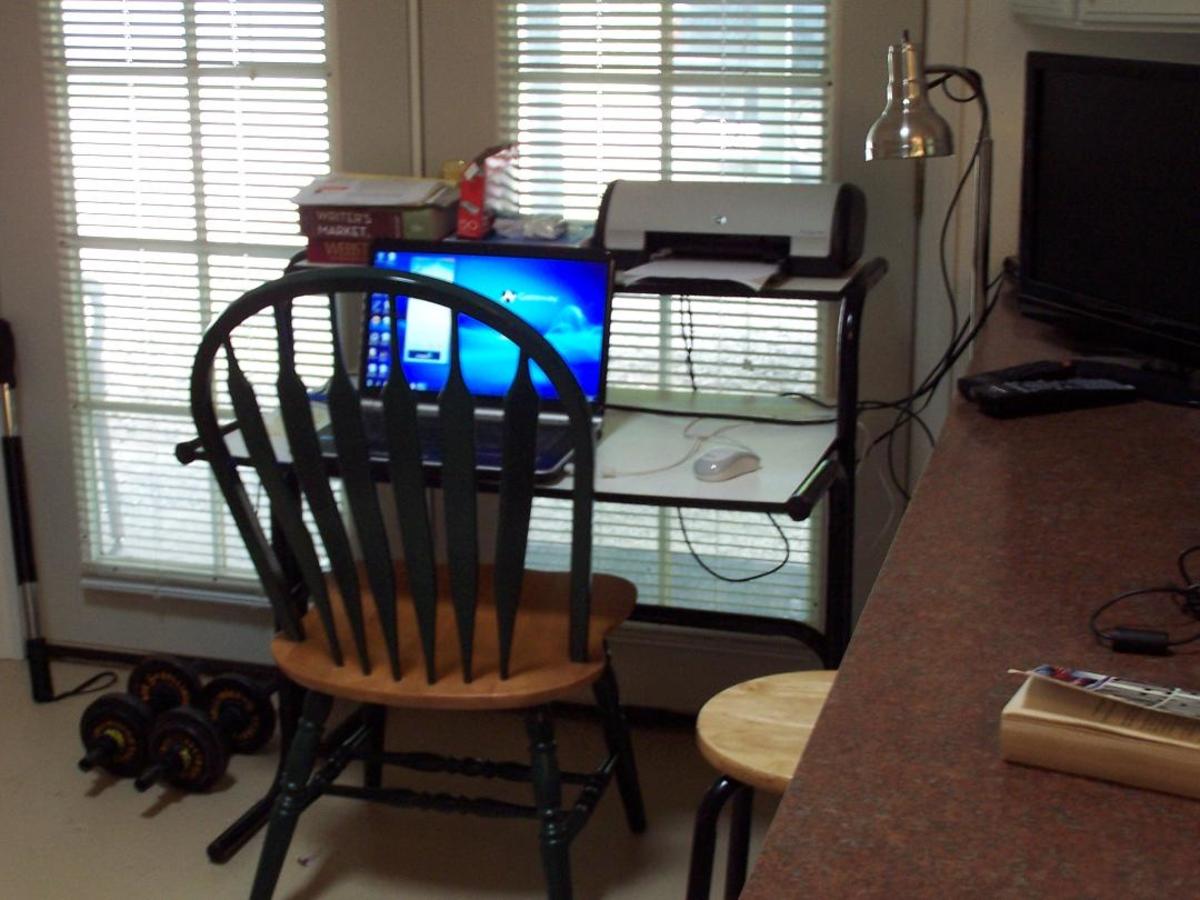The Writer's Mailbag: Installment 296
Three Days of Sunshine
It’s amazing what a little sunshine will do for the soul, you know? After a dismal January which culminated in some of the worst flooding we have ever seen in these parts, we were graced with three days of sun and a peaceful, easy feeling, my shout out to The Eagles.
It’s a little bit like a writer who labors in obscurity for years. Sometimes all it takes is a small word of encouragement from a friend or family member, and the juices start flowing again and the fire burns brightly within that writer’s soul.
Have you been the much-needed sunshine for a writer lately? Just a word of encouragement, a verbal pat on the back, an atta boy to make them feel like what they do is important.
Just something to think about.
We have a full bag this week, so let’s do it to it like Sonny Pruitt!
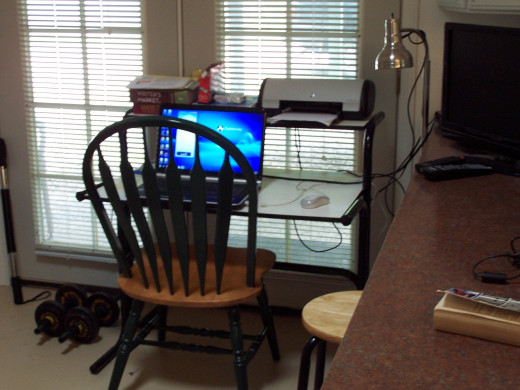
Differing Approaches
From Chris: “Bill, I couldn't agree more that the speed of production is valued more than the quality of the product. Thanks for emphasizing it for us. My question is related to a small degree. Would you elaborate on these two methods of writing which are antithetical to each other? Right now I am in the middle of a story which I know I have been forcing from sentence one. It is not flowing. I am constantly backing up and "fixing" parts that are inconsistent.
“Then I would like you to contrast that with letting the story tell itself. I know it is good when I am writing as I see it happen in my mind. What do I do with the former? Keep it? Throw it out? How can I cultivate the latter?”
Chris, let me start by saying I never throw anything out. I’m a writing pack rat, my friend. I figure if it was good enough to inspire me to start a story or a novel, it is good enough for me to save in a “Someday File.” And that’s truly what I call that file. Someday I will return to those partially-completed stories and finish them, but only when I “feel it.”
Secondly, I never rush or force creative writing. I don’t trust myself if I’m writing with a self-imposed time limit. I’ve learned to trust my “muse,” and since I know you are an exceptional writer, you need to give your muse total trust as well.
How do you cultivate the latter? That’s the toughest of your questions. My muse comes to me when she damned-well feels like it. For me, my creativity flourishes when I don’t think about it. Out on a walk, doing yard work, playing with the dogs, going for a drive downtown, that’s when ideas and storylines come to me. How to cultivate? Don’t think about it would be my advice; leave it alone and then return to it in a couple days. Maybe your muse is just tired. Maybe she’s doing chores like I should be doing right now.
DASHES
From Kari: “All this talk of dashes has me wondering. What is the correct way to place a dash between two words? Do you leave a space before and after? Or, just put word-word? (BTW Zulma, I agree the practice is just odd.)”
Kari, I’ve written more about dashes in the last couple weeks than I had in years prior. Damn those dashes!!!!
I’m probably going to be corrected on this in the comment section, but here goes my understanding about dashes.
The en dash is shorter than the em dash and has a different usage. One would normally use the en dash in this way: The business was open for five years, 2000-2005.
The em dash is used more like a comma, and most proponents of the em dash put a space before and after it, as in this example: He wanted to call his father – John Davies – for advice. I did, however, find a couple people online who say there is no spacing before and after. Sigh!
I’m not too fond of the em dash, but that is purely a personal bias and it is unfounded. LOL
An Annoying Follower
From Fellow Hubber: “Legitimate question. Have you ever had a follower with maybe low social skills who leaves too many comments because let's face it they take effort to respond to and they try to teach or inform you as an authority on any toic you wrote on? I log on and at any time will have 15 comments. Sadly, 8 will be very long comments from this one person. I want to roll my eyes every time I see their name. It also makes me not want to log on or respond to anyone. What would Bill do (WWBD?)”
Actually, this has happened a couple times. It wasn’t the precise situation you are describing, but it was similar enough to count in this conversation. There was one guy, about seven years ago, who took a serious dislike to my articles. This was back when I wrote a lot about social issues and even politics. The guy would show up daily with some snarky comment. I totally ignored him and eventually he just faded into oblivion.
The second was a young woman who, I believe, was mentally imbalanced. Others who dealt with her thought the same. It was this creepy stalking kind of thing. I, and others, eventually reported her to HP and they kicked her off the site.
With your guy I would just ignore him. Don’t even write a response to his comments. I’m pretty sure he will fade into the woodwork eventually.
Good luck!
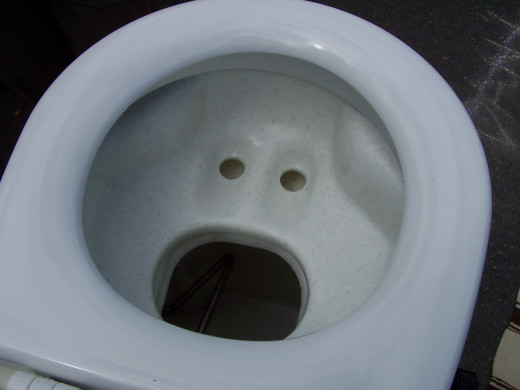
Summary on Hp Articles
From Ruby: “I have a question. I wrote my last article and a notice came up telling me that I hadn't written a summary, so I wrote one, but it wasn't there when I published the article. Did I miss a step? What do you click after writing the summary? Thanks for all you do for we Hubbers.”
Ruby, did you know there is a HubPages Writing Style Guide? I had no idea, but I found it while looking for an answer to your question.
I have no clue what happened with your summary. I assume you are talking about that section right after the title. After you wrote it, if you were in “edit” mode, it should have saved it. I’ve never clicked on anything after writing the summary and it’s always worked for me. Maybe I’m not understanding your question. Anyone out there with an opinion? Drop it in the comment section, please.
Ellipses and Em Dashes
From MizB: “Bill, I was going to mention the en dash, but I see that Brian beat me to it. Something about the em dash or long dash, as some people call it – I've noticed that some writers are replacing it with ellipses, which I don’t like at all. To me the ellipses should be reserved for their primary purpose, to replace text left out. I’m a fan of the em dash in creative writing for emphasis, not the ellipse. What do you think?”
I think you are and I are different, MizB, but we already knew that, didn’t we? I’m not a fan of the em dash, but I do love ellipses. LOL Go figure! To your earlier statement, I will confirm that ellipses are completely different than em dashes, so your observation is right on. I have to believe it’s because most people don’t have Clue One how to properly use ellipses.
Spell out Numbers
From Linda: “Hi Bill - I'm back, tilting at windmills (AKA Hub Pages editors). My latest beef is that they seem to have forgotten the rules from the AP Style Book (or the GPO Style Manual which at the Federal Government was the Bible of writing), or probably what your beloved teacher Sister Mary Katherine said: "Spell out numbers at the beginning of a sentence." What say you? Am I old school, behind the times, out of touch (how many more cliches can I use before you cut me off?) The editors change words to numerals, and I change them back. And on and on it goes.”
Oh here we go, Linda! “Katie bar the door” with this question. According to the Chicago Manual of Style, whole numbers from one through one hundred, round numbers and any number beginning a sentence should be spelled out. For other numbers, numerals are used. Sister Mary Katherine would agree with that summation.
On the other hand, I had an editor who once told me to spell out all numbers in my novel. I had another who told me to always spell out a number at the beginning of a sentence and then just be consistent from then on.
I’m going with Sister Mary Katherine on this one, but I’m sure someone is going to correct me in the comments.
P.S. I happen to think the HP editors are, at times, lacking in grammatical knowledge.
CONSISTENCY
From Eric: “Consistency is your middle name. Do you still work at that or is it like a free flow. And if so how long did it take you to reach that point. Of course this has to do with time set aside for novel writing also.”
Eric, just call me Mr. Free Flow. I no longer have to work at consistency. Mind you, it has taken me since 2006 to reach this point but yes, I’m finally there.

CREATIVITY
From Liz: “Thanks for sharing about inspiration. How much of your creativity in terms of plots comes from events you have come across in life and in the news and how much would you say is just off the top of your head and from your imagination? It's a fascinating exercise to analyze how a creative writer works.”
Liz, thanks for the question, and I agree it is fascinating to learn about the creativity of other writers.
The basic ideas for stories or novels come almost exclusively from events in my life and stories on the news. The actual stories, though, just sort of appear in my brain as I write them. I’ve mentioned before that I actually have no idea where a story is going when I start it. That is still true. I’ve written seven novels and six novellas, and every single one of them started with a random introduction/writing exercise. I then build the story based upon that introduction or prologue. About halfway through each of them, the ending will appear to me.
It works for me. I don’t think I would suggest it for others to try.
A Challenge
I’m challenging each of you to read an HP article this week by a writer you have never followed before. Read the article and then leave positive, encouraging feedback. Let’s fill the internet with some HP love for writers who may need it.
Are you with me?
Thanks a bunch! I hope to see you all next week in the Mail Room. Until then, remember, do all things with love.
2020 William D. Holland (aka billybuc)
“Helping writers to spread their wings and fly.”

